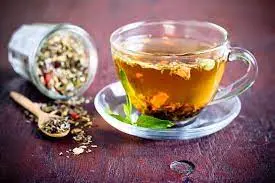Maintaining a balanced gut microbiota is essential for overall health. From digestion and immunity to mood and metabolism, the community of microorganisms in your gut—often referred to as the gut microbiome—plays a key role in how your body functions. When this ecosystem falls out of balance, it can lead to issues such as bloating, irregularity, fatigue, weakened immunity, and more serious conditions over time. One gentle, natural way to support gut health is through digestive tea. While often known for easing bloating or promoting regular bowel movements, digestive tea can also nourish and stabilize the gut microbiota. Thanks to its powerful blend of herbs and botanicals, it offers benefits that go far beyond simple gas or digestion relief.
In this article, we’ll explore how digestive tea can support and balance gut microbiota, and why it’s a smart addition to your daily wellness routine.
Understanding the Gut Microbiota
Your gut is home to trillions of microbes, including bacteria, fungi, and viruses—most of which are beneficial. These microbes assist with digesting food, producing vitamins, regulating inflammation, and even supporting brain health. However, modern diets, stress, antibiotics, and environmental toxins can disrupt the balance of your microbiota, allowing harmful bacteria to dominate.
Restoring microbial balance often requires a combination of prebiotics (foods that feed good bacteria), probiotics (beneficial bacteria themselves), and supportive herbs—many of which are found in digestive tea.

Digestive Tea
How Digestive Tea Supports a Healthy Gut Microbiome
1. Prebiotic-Rich Ingredients Feed Beneficial Bacteria
Certain herbs in digestive tea contain prebiotic fibers and compounds that serve as food for your beneficial gut bacteria. For example:
- Licorice root and slippery elm contain mucilage, which can help nourish the gut lining and provide a food source for probiotics.
- Dandelion root is rich in inulin, a type of prebiotic fiber known to feed healthy bifidobacteria.
By feeding good bacteria, these ingredients encourage microbial diversity and resilience.
2. Reduces Inflammation in the Gut
Inflammation in the digestive tract can disrupt the balance of gut microbes by creating an environment where harmful bacteria thrive. Many herbs found in digestive tea, such as chamomile, turmeric, and peppermint, have anti-inflammatory properties that help soothe the gut lining and support immune balance.
When inflammation is reduced, the microbiome can function more efficiently and return to balance more easily.
3. Improves Bile Flow and Digestion
Proper bile production is essential for breaking down fats and absorbing nutrients—both crucial for maintaining gut health. Herbs like dandelion root and ginger stimulate bile flow from the liver and gallbladder, which supports digestion and reduces the buildup of harmful metabolites that can feed undesirable bacteria.
Better digestion means less undigested food reaching the colon, which reduces fermentation, bloating, and the proliferation of gas-producing microbes. This is why digestive tea often overlaps with gas relief tea in function and formulation.
4. Soothes the Gut Lining
A damaged gut lining—sometimes referred to as “leaky gut”—can allow harmful substances and bacteria to enter the bloodstream, triggering inflammation and immune reactions. Herbs like slippery elm, licorice, and marshmallow root coat and soothe the intestinal walls, helping to restore barrier function.
A healthier gut lining supports a healthier environment for beneficial bacteria to thrive.l
5. Balances Gut Motility
Sluggish or overly rapid bowel movements can negatively affect the microbiome. Slow transit can allow for harmful bacteria to grow, while rapid transit can flush out beneficial species before they can reproduce. Herbs such as fennel, peppermint, and ginger help regulate gut motility, ensuring that food and waste pass at the right speed.
By balancing movement through the digestive tract, digestive tea promotes a stable, hospitable environment for microbes.
Common Digestive Tea Herbs That Support Gut Microbiota
Here are some of the most effective herbs in digestive tea and their roles in balancing the microbiome:
- Ginger: Stimulates digestion, reduces inflammation, and supports gut motility
- Fennel: Relieves gas, reduces bloating, and helps regulate movement
- Dandelion root: Acts as a prebiotic and supports liver and bile function
- Licorice root: Soothes inflammation and feeds beneficial bacteria
- Chamomile: Calms the digestive tract and supports nervous system balance
- Slippery elm: Coats the gut lining and supports mucosal health
- Peppermint: Relieves cramps, bloating, and supports microbial balance
These ingredients often appear in both digestive tea and gas relief tea blends, highlighting their versatile digestive benefits.
How to Use Digestive Tea for Gut Health
To support gut microbiota balance with digestive tea, consider the following tips:
- Drink regularly: Consistency is key. One or two cups daily can make a significant impact over time.
- Time it wisely: Enjoy a cup after meals or before bed to support digestion and overnight repair.
- Choose high-quality blends: Look for organic, preservative-free teas with a variety of microbiota-supporting herbs.
- Pair with a gut-friendly diet: Combine your tea ritual with fiber-rich, whole foods to further feed your healthy gut bacteria.
Final Thoughts
While digestive tea is often praised for its role in easing constipation or acting as a gas relief tea, its true power lies in how it nourishes and balances the gut microbiota. With a blend of anti-inflammatory, prebiotic, and digestive-enhancing herbs, digestive tea supports the conditions needed for a diverse and healthy microbiome.
Balancing your gut isn’t just about taking probiotics—it’s about creating an environment where beneficial bacteria can thrive. By including digestive tea in your daily routine, you’re taking a natural, effective step toward better digestion, stronger immunity, and improved overall well-being.




